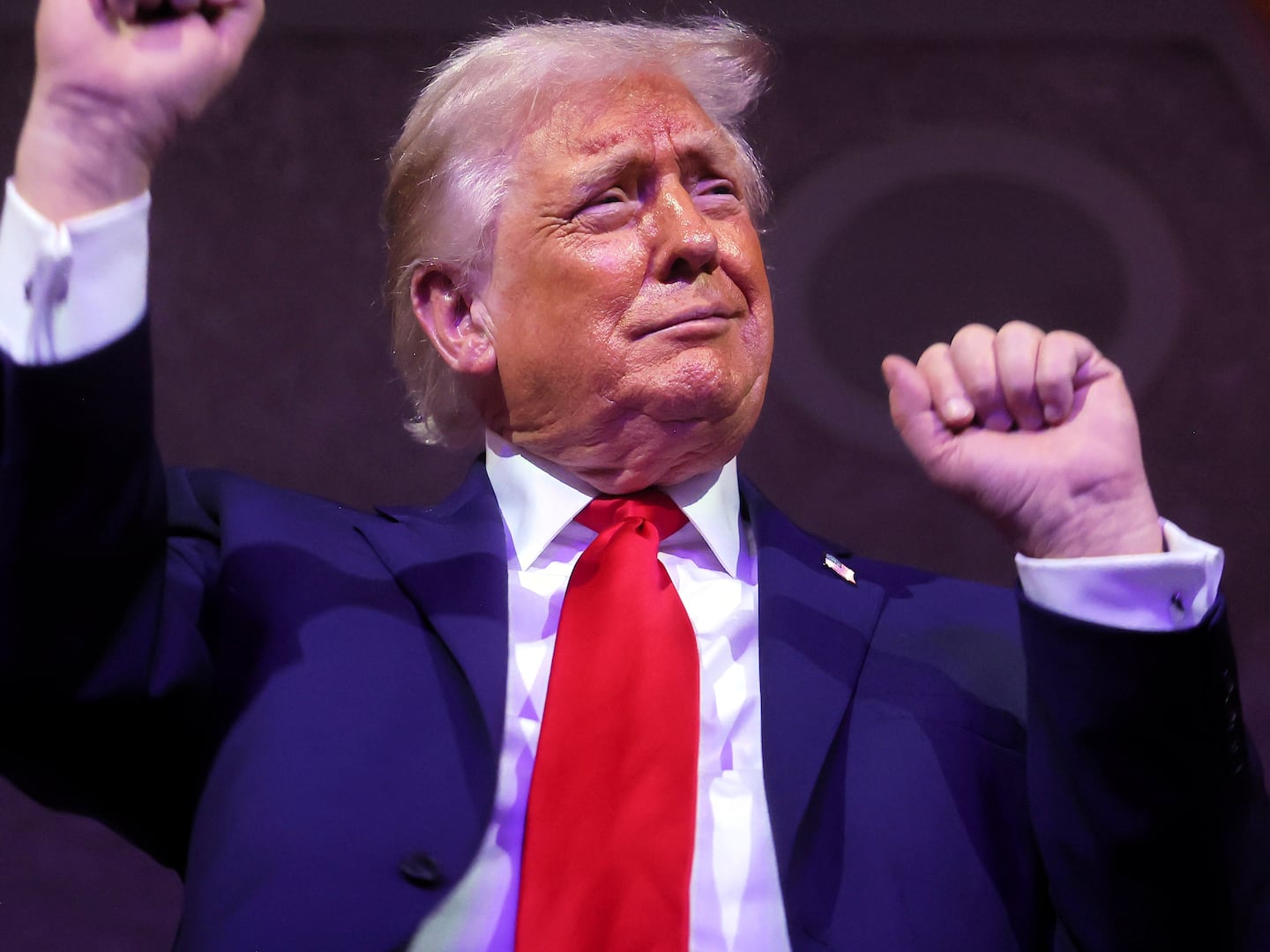The Winklevoss twins, Cameron and Tyler, immortalized in The Social Network as the Winklevii, are back in the news. Seeking to cash in on the craze for Bitcoin, the alternative digital currency, they announced Monday their intent to sell shares to the public in the Winklevoss Bitcoin Trust. (Here’s the prospectus.) The offering of about 1 million shares at about $20 each is for an exchange-traded fund—kind of like a mutual fund that trades like a stock. The idea is that people buy the shares, and the Winklevoss Bitcoin Trust uses the money to buy Bitcoins.

I had three thoughts upon reading the prospectus: (1) Dudes, really? (2) A tweet: faux business guys set up a faux hedge fund to invest in faux currency. (3) This is why you shouldn’t send rich kids from Greenwich to Harvard and then to Silicon Valley.
The Winklevii will go down in history for having played a much-disputed role in the origins of Facebook. In the world’s first recorded allegation of square-jawed crew dudes being victimized by hoodie-wearing computer scientists, the Winklevoss twins claimed that Mark Zuckerberg had essentially stolen their idea. The twins walked away with a settlement that gave them $20 million in cash and shares that are worth a few hundred million dollars.
Rather than use the cash to lead the lives of playboys, the Winklevoss twins have decided the best revenge is entrepreneurship. They want the world to see them as tech nerds, not crew dudes. “It’s always been this David and Goliath, blueblooded jocks versus this hacker kid, when really it’s a fight or dispute between privileged parties,” Cameron told The New York Times. “The similarities between us and Zuckerberg are actually greater than the dissimilarities.”
They’ve set up a venture-capital firm that has made investments in Hukkster, which allows you to track favorite items on shopping sites and then lets you know when they go on sale, and SumZero—founded by their Harvard compadre Divya Narendra, also depicted in The Social Network—an online community for financial professionals to exchange research ideas. (Think of it as a virtual manifestation of the Greenwich Country Club.) Both seem like decent, if derivative, ideas.
The Winklevoss twins further amped up their nerdiness by plunging into the strange world of Bitcoin. In April they let it be known that, in the words of The New York Times, they had “amassed since last summer what appears to be one of the single largest portfolios of the digital money, whose wild gyrations have Silicon Valley and Wall Street talking.” Of course, at about the time they were disclosing their big position, Bitcoin started to crash. “We have elected to put our money and faith in a mathematical framework that is free of politics and human error,” Tyler Winklevoss said.
Now they’re setting up a financial mechanism that will give average joes the ability to get in on the Bitcoin action. In exchange, an entity controlled by the Winklevoss twins will get an unspecified sponsor’s fee.
So what’s the problem?
Well, I’m not sure what to say about the prospectus, except that the highly paid Wall Street lawyers who wrote it must have been suppressing laughter as they went about their business. This is a tiny offering, about $20 million to start. There’s no mention of which exchange it will trade on. The risk factors, which are voluminous, often read as if they’ve been lifted from Dungeons & Dragons manuals. Like this: “The loss or destruction of a private key required to access a Bitcoin may be irreversible. The Trust’s loss of access to its private keys or its experience of a data loss relating to the Trust’s Bitcoins could adversely affect an investment in the Shares.” And this: “If a malicious actor or botnet obtains control in excess of 50 percent of the processing power active on the Bitcoin Network, such actor or botnet could manipulate the source code of the Bitcoin Network or the Blockchain in a manner that adversely affects an investment in the Shares or the ability of the Trust to operate.” Wait. What? There’s also something in there about “cancer nodes.”
The offering also concedes that Bitcoin may not be an asset class that is ready for primetime. “Over the past three years, many Bitcoin Exchanges have been closed due to fraud, failure or security breaches,” the prospectus notes. It also helpfully points out that “it may be illegal now, or in the future, to acquire, own, hold, sell or use Bitcoins in one or more countries.” Plus, “shareholders may be adversely affected by lack of regular shareholder meetings and no voting rights.” These aren’t stocks and bonds. There are no assets, or central banks, or governments, or institutions backing the value of Bitcoins. And there’s no recourse if the whole thing goes tapioca. Veritas!
Of course, the Winklevii are holding out the offering as a new technological innovation. “The Sponsor believes the Trust to be the first exchange-traded product that seeks to track the price of a Digital Math-Based Asset such as Bitcoins (a ‘DMBA ETP’),” the prospectus notes. It also cites “the Trust’s proprietary Security System” as an advantage.
The only engineering going on here is financial. And the offering says something about our contemporary financial culture.There are lots of ways to make money in America. One way is to build a business over a long period of time. Start a store, or factory, or power plant, or an insurance agency; operate it profitably; then open another and then some more; then sell shares to the public; and keep going. This is what Ford, Microsoft, McDonald’s, Apple, and so many other businesses large and small have done.
But for virtually all their lives—growing up in Greenwich, at Harvard with Zuckerberg in the ’00s, in Silicon Valley for the last several years—the Winklevii have been in milieus in which having $10 million or $20 million in the bank makes you a chump, in which $1 million isn’t cool, but $1 billion is. They inhabit and work in a world where fortunes are made very quickly or not at all and where spending a decade of your adult life building something of lasting value renders you a fuddy-duddy. Frequently, the way to get rich quick is through a gimmick—an app that has no revenue, games played on Facebook, half-off coupons, texts that disappear. Come up with something clever, let the Internet take it to scale, and then find a buyer. Many of the recent Silicon Valley (and Silicon Alley) successes have never really sold anything but their own shares: Tumblr, Instagram, Snapchat.
I’m not suggesting that the Winklevii or anybody else who has minted a tech fortune should wear hair shirts and spend their lives ministering to the poor. But there are plenty of examples around them, especially in Silicon Valley, of smart people who are using their cash to build companies that make real products and offer real services, that offer solutions to real problems—think of Tesla, or First Solar, or Nest, or Square, or Dropbox, or Opower. This public offering is just about moving digital money around.
Of course, we could all be the chumps here. Maybe in five years we’ll all be using Bitcoins to pay our electricity bills, and the price of Bitcoins will soar. If so, the Winklevii will have performed a great service by enabling retail investors to get in on the action with small investments, and they’ll get even richer. If not, they may provide some succor to all the skeptics. Should the shares of the Winklevoss Bitcoin Trust go public and trade like other exchange-traded funds, the rest of the world will suddenly be presented with a means of betting against them.






